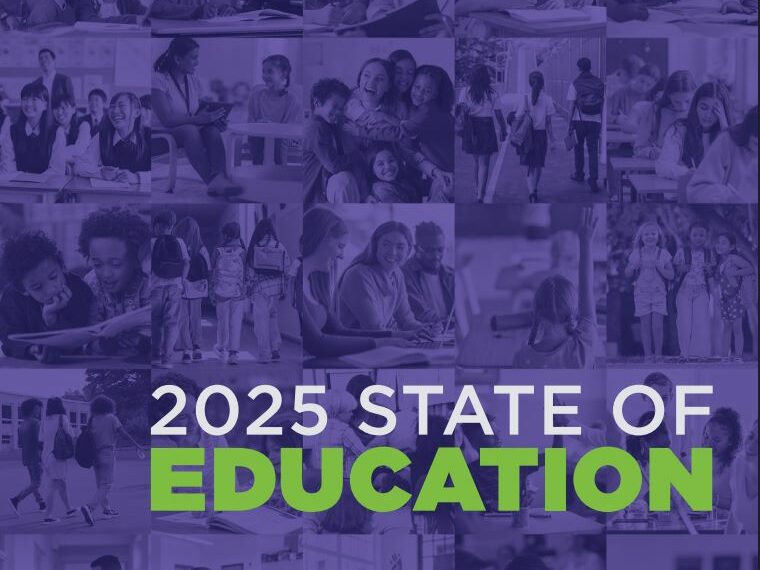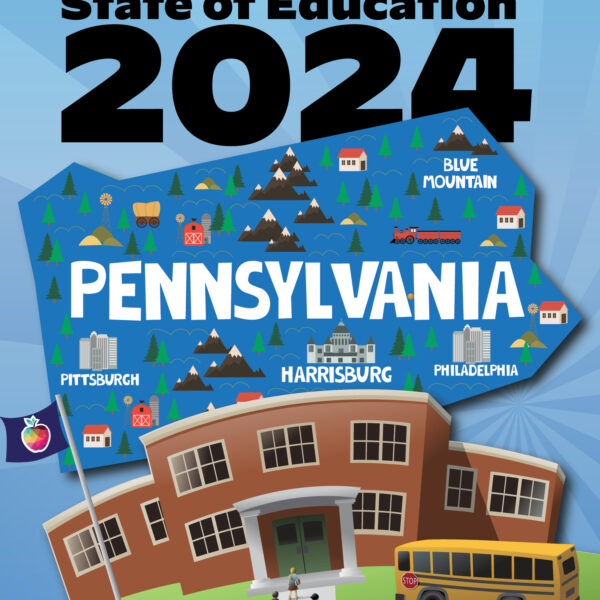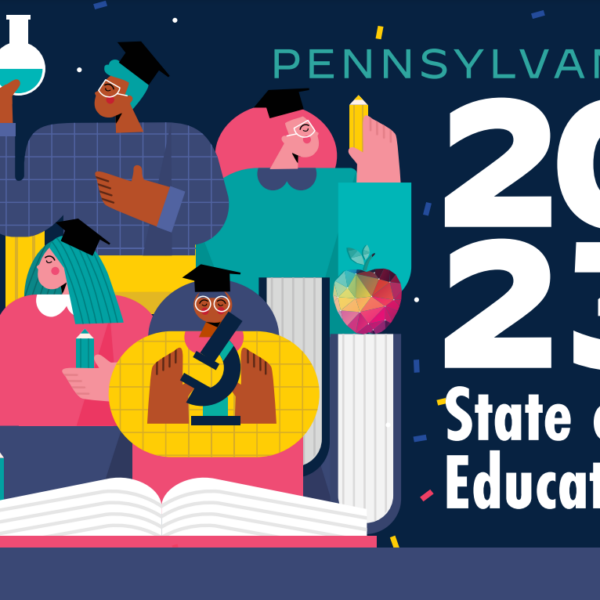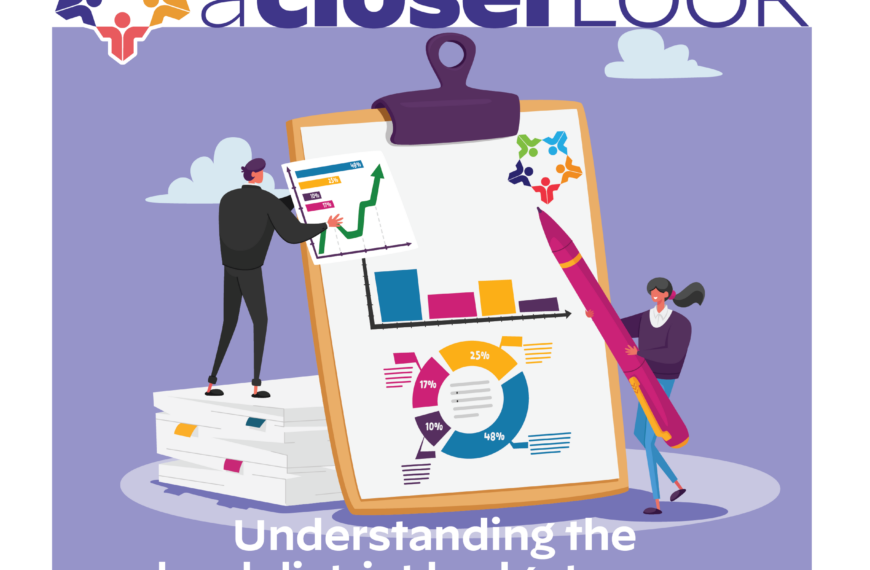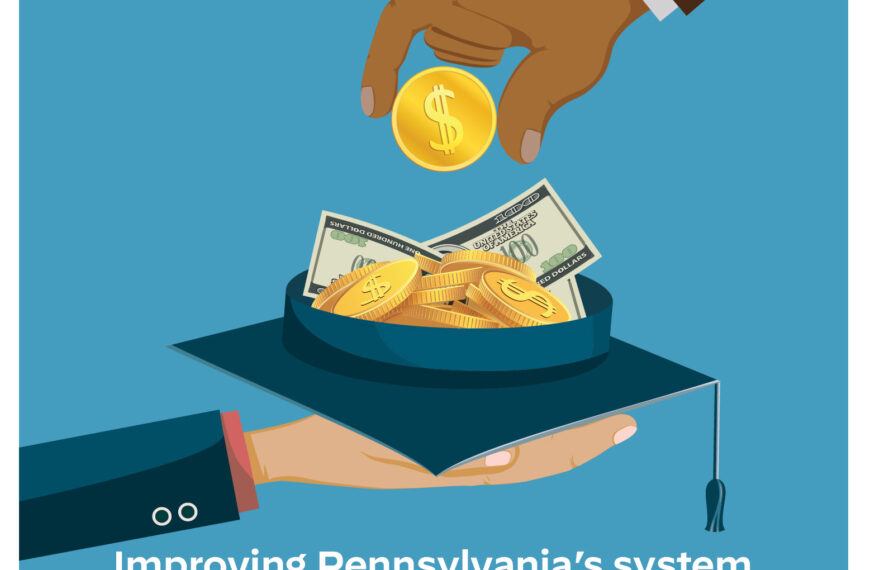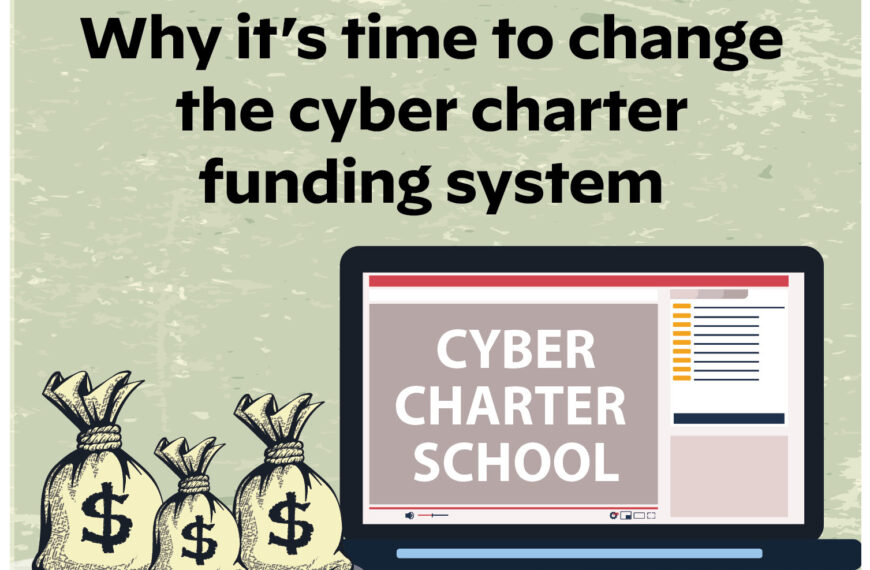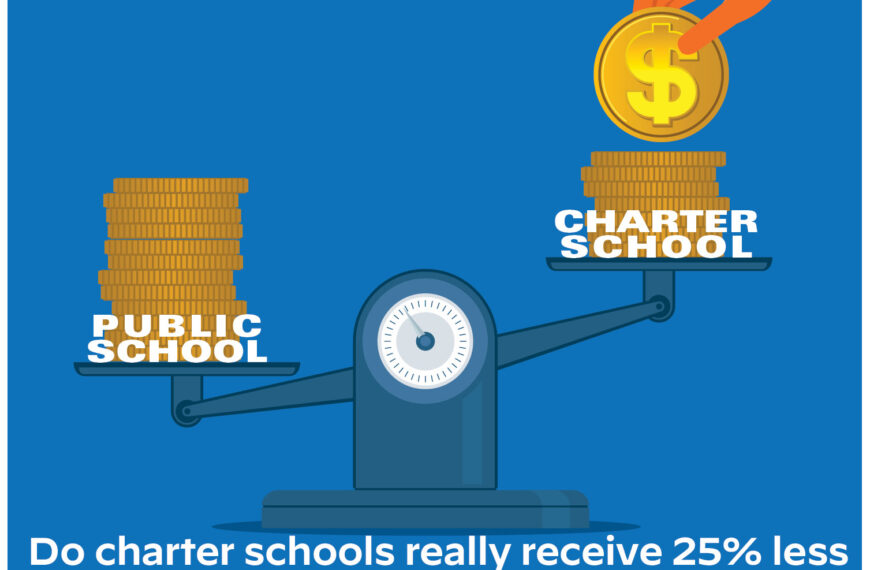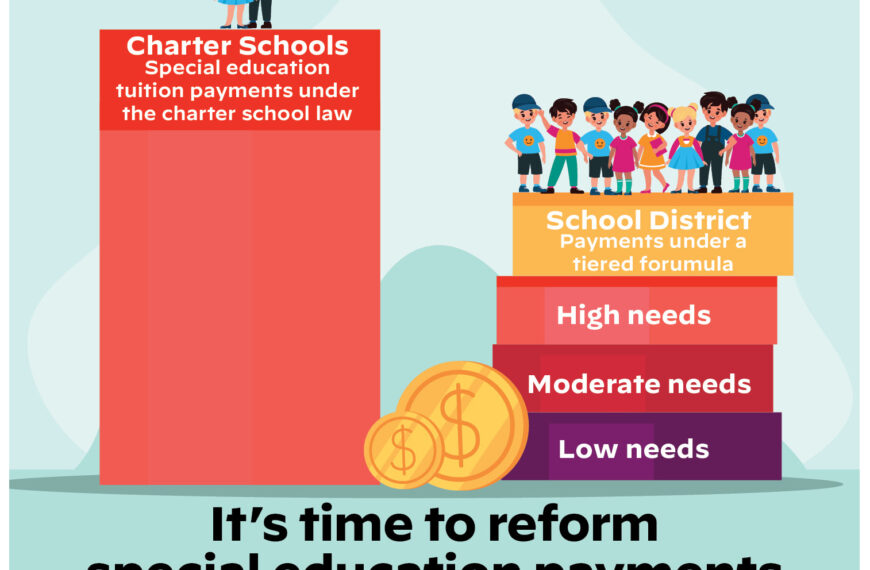Legislative priorities
PSBA is the voice of school boards and public education in the halls of the Capitol. We are actively involved in a wide range of legislative issues and work to leverage change on the issues of greatest importance to local school officials.
Our advocacy work includes drafting bills and amendments, participating in meetings, and providing analyses and comments on key proposals. In addition to fostering support for the issues most relevant to local school officials, PSBA strives to protect public education by working to block harmful legislation.
Our key issues include:
The state’s Charter School Law (CSL) dates back to 1997, and outside of adding provisions which allowed for the creation of cyber charter schools in 2002, had seen very little change since its enactment 25+ years ago.
However, this changed within the 2024-25 Pennsylvania state budget, when PSBA successfully advocated for the first round of meaningful cyber charter school reform. Act 55 of 2024 contained reforms regarding advertising and sponsorships, ethics and transparency, cyber charter use of school facilities for testing purposes, and changes to the calculation of special education tuition. With these much-needed reforms accomplished, PSBA will continue to advocate for more, such as a statewide cyber charter tuition rate.
Although state government and local school districts are partners in funding public schools, this partnership has been less than equal. According to the 2024 State of Education Report, approximately 37% of the costs of public education is covered by the state, forcing local school districts to make up the difference, mostly through property taxes. From a national perspective, only four other states receive a higher proportion of education funding from local revenues than Pennsylvania. Asking districts to continually generate greater resources at the local level only serves to expand the inequities of the current system and widens the gap between poor and affluent school districts.
Since the Commonwealth Court issued its landmark ruling in 2023 finding Pennsylvania’s system of public education unconstitutional, the state has been placed a unique position to increase its share of education funding to benefit the state’s 1.7 million public school students and to better enable all school districts to provide a world-class education.
The 2024-25 state budget began the process of addressing the Commonwealth Court ruling by providing more than $1 billion in increased education funding. While this is the first step in a multi-year, multi-pronged approach to address the court ruling, PSBA continues to stand ready to assist the General Assembly to accomplish the monumental task of reshaping the public education system to meet the diverse needs of school districts and students across the state.
Special Education
School districts are required by law to provide students with disabilities with a free appropriate public education, or “FAPE”. The provision of FAPE requires schools to provide the programs, services and supports that a student with a disability need in order to receive an education. These added rights and protections come at an additional cost. But as costs have increased, state and federal special education funding has failed to keep pace. In the 2011-12 school year, 32% of all special education expenditures were covered by state and federal funding. By 2021-22 that percentage had fallen to just 24%.
To meet the needs of the state’s 324,000 public school students with disabilities and to better enable all school districts to provide world-class special education programs and services, the state and federal governments should increase their share of special education funding.
School districts strive to provide safe and supportive school environments for their students. Students’ mental health impacts their ability to learn, the safety and security of our schools, the classroom environment for all students, and the work environment for teachers and staff.
One of the most pressing needs facing school leaders has been addressing the mental health needs of their students. In the 2024 State of Education report, 78.8% of respondents cited student mental health issues as the top instructional challenge. With this in mind, many school districts are expanding their programs and services to address this growing need. Public schools need flexibility to be able to provide an array of varied mental health services that are built on a strong foundation of consistent school programs and access to well-trained professionals.
Schools need adequate and continued state resources in order to supplement current mental health programs and services and to help with continued funding of these programs and services as one-time federal pandemic and state mental health grant dollars are exhausted. These critical funds allow districts to provide additional mental health staff and services that best meet the needs of their students and communities.
PSBA also supports common sense efforts to help our schools in safety matters while emphasizing that there is no one-size-fits-all solution to providing safe school environments. School districts are vastly different throughout Pennsylvania in their needs; therefore, the best approaches to school safety often must be determined at the local school district level. The state must provide schools with continued and long-term funding, assistance and flexible options that best meet the needs of their communities to provide a safe and secure school environment. Grants should also be available to assist schools in meeting safety and security preparedness initiatives, including funds for physical security enhancements, personnel, training and other needs.
Voucher programs redirect taxpayer dollars from public schools to pay for private educational uses. Repackaged under different names, private school vouchers all function to undermine public education and publicly subsidize private education. Legislative proposals to create voucher plans have been introduced in states across the country, including Pennsylvania.
Private school vouchers can be disguised to look like:
- Education Savings Account Vouchers (ESA): ESA vouchers are public funds deposited into a personal account that can be used to pay for a student’s private school tuition or other education expenses, such as tutoring, online coursework, transportation or homeschooling. These vouchers can be specialized to only affect special education students or perhaps only the children of armed service members.
- Scholarship programs: Scholarship programs aim to provide students in one or more classifications with public funds which the student’s family could then use to pay for private school tuition, tutoring, or other educational programs or services.
- Traditional private school vouchers: Traditional vouchers pay for all or part of a student’s private school tuition with direct payments from a public treasury. States may impose student eligibility requirements, limits on voucher amounts and/or conditions on private schools receiving voucher students.
The problem with vouchers
- While vouchers are described as an option to help certain groups of students, studies of voucher programs across the country have found that students who participate in private school voucher programs fare worse academically than students educated in public schools.
- Voucher plans siphon millions of dollars from school districts, many that are already under-resourced, to benefit private schools.
- While public schools have strong accountability measures for public meetings, transparency, governance, academic achievement, testing/reporting and financial responsibilities, private and other non-public schools have almost complete autonomy over how they operate.
- Vouchers do nothing to improve the education of all students. Creating a separate education system does nothing to address inadequacies or issues with existing public school systems. Subsidizing private schools doesn’t help the 90% of children who attend public schools.
- Students attending a private or other non-public school and their families are not entitled to the same rights and protections as students and families in public schools such as special education for students with disabilities and student discipline.
School districts and other local governments are required to provide public notice of meetings, bidding requirements for certain purchases and contracts, legal notices and official advertisements. The only legally permissible method of providing that public notice dates back to a 1976 law which requires that the notice be provided in printed newspapers. This mandate was created long before the Internet changed the ways that people receive information.
PSBA fully supports the need to keep the taxpayers and communities informed of district events and operations. However, as the frequency of printed newspaper publishing dwindles (and in some areas disappears) school leaders are required to plan their business around newspaper publication dates. As more people shift away from printed newspapers as their major source of information, school leaders are also confronted with the challenge of efficiently and effectively notifying their constituents of upcoming school business.
PSBA is advocating for solutions which would provide school districts and other local governments with a flexible menu of print and electronic options for advertising legal notices. One-size-fits-all solutions are not effective and rarely work in a state as large and diverse as Pennsylvania. Offering districts flexibility with more options for advertising is one way we can ensure that school officials are able to interact with greater numbers of the community in a more timely and cost-effective manner. Allowing public notices to be posted electronically will not only boost visibility due to increased access to and usage of the internet, but public notices would also be searchable and available to a broader community base.
School districts have an obligation to provide facilities that are constructed and maintained to meet the educational and safety needs of their students and staff. In turn, the state has a responsibility to help districts pay for needed construction and renovation projects. However, school districts have faced a two-fold obstacle in meeting their obligation — inadequate or nonexistent state funding, and overly complicated state approval process for school construction projects, known as PlanCon.
Through PSBA’s advocacy efforts, Act 70 of 2019 was enacted to modernize and simplify the PlanCon process. It also creates a project building maintenance and repair grant program to be used for smaller maintenance and modernization projects as well as health and safety upgrades, emergencies and other approved projects.
Unfortunately, the new PlanCon program remains unused and unfunded. A moratorium that began in 2016 and continues today on accepting school projects for reimbursement has left districts and taxpayers left to carry the full financial burden.
Many schools across the state are struggling with a variety of facility maintenance, renovation and construction needs. However, the lack of state support for school construction has forced many school districts to postpone needed renovations or to cut educational programs to free up resources to address critical construction or maintenance needs.
For these reasons, it’s time to provide predictable and sustainable state funding for the new the PlanCon program or funding on a recurring basis for facilities construction, renovation, maintenance and remediation programs.
While Pennsylvania’s Right-to-Know Law (RTKL) guarantees citizens with access to the public records of state and local government agencies, including school districts, some important reforms are needed to address unintended consequences of the law that have a negative impact on such agencies and their taxpayers.
Commercial requests
One of the unintended consequences of the law has been the ability of individuals and companies to obtain information through the RTKL that they intend to use for financial gain, for example, a request for addresses and information that the requester will use to solicit new customers or a request for information that the requester will then re-sell as part of a service or product.
School districts must spend staff time and resources to comply with commercial requests. Many of these types of requests are vague, overbroad or voluminous and can take hours to locate a wide array of records, redact information in the records, or require the involvement of a school district’s attorney to evaluate the request.
Districts cannot recoup any of the costs associated with complying with these requests because the current fee structure in the law does not allow for charging any fees beyond duplication and mailing costs. As a result, taxpayers are being forced to foot the bill for assisting in the marketing and profit-making efforts of private businesses. While school districts have no desire to prohibit commercial requests, a solution must be found to provide a better balance.
Vexatious requests
The intent of the RTKL was to ensure that residents had access to information about their government. However, another unintended consequence has been the ability to use the law with malicious intent to intimidate, harass or punish an agency, which results in bogging down the agency and wasting taxpayer resources. This was never anticipated by the General Assembly when the original statute was passed. While cases of vexatious requesters are not the norm, agencies need the ability to seek relief from those requesters who seek to use the law as a weapon.
PSBA promotes exceptional public education.
During the 2021 – 22 legislative session, PSBA successfully worked with our members to support public education in the commonwealth.
Resources
PSBA’s internal subject matter experts regularly produce reports about crucial issues impacting public education in Pennsylvania. These reports are intended to clearly and concisely communicate the challenges that school leaders face to key stakeholders, including legislators and community members.
State of Education report
The annual State of Education report is intended to serve as a barometer of not only the key indicators of public school performance, such as standardized test scores and school finances, but also the timely challenges that public schools are facing and how they are coping with them.
The goal of the report is to provide a high-level overview of the key indicators of the state of public education in the commonwealth, which will facilitate key education policy discussions among legislators and school leaders.
Data used in the State of Education report comes from surveys of school leaders and a compilation and analysis of publicly available data from sources such as the Pennsylvania Department of Education (PDE) and National Center for Education Statistics.
Closer Look publications
The Closer Look series provides in-depth information and research on key K-12 public education and advocacy topics. They are intended to provide the public, parents, school leaders and legislators with insights on timely issues.
